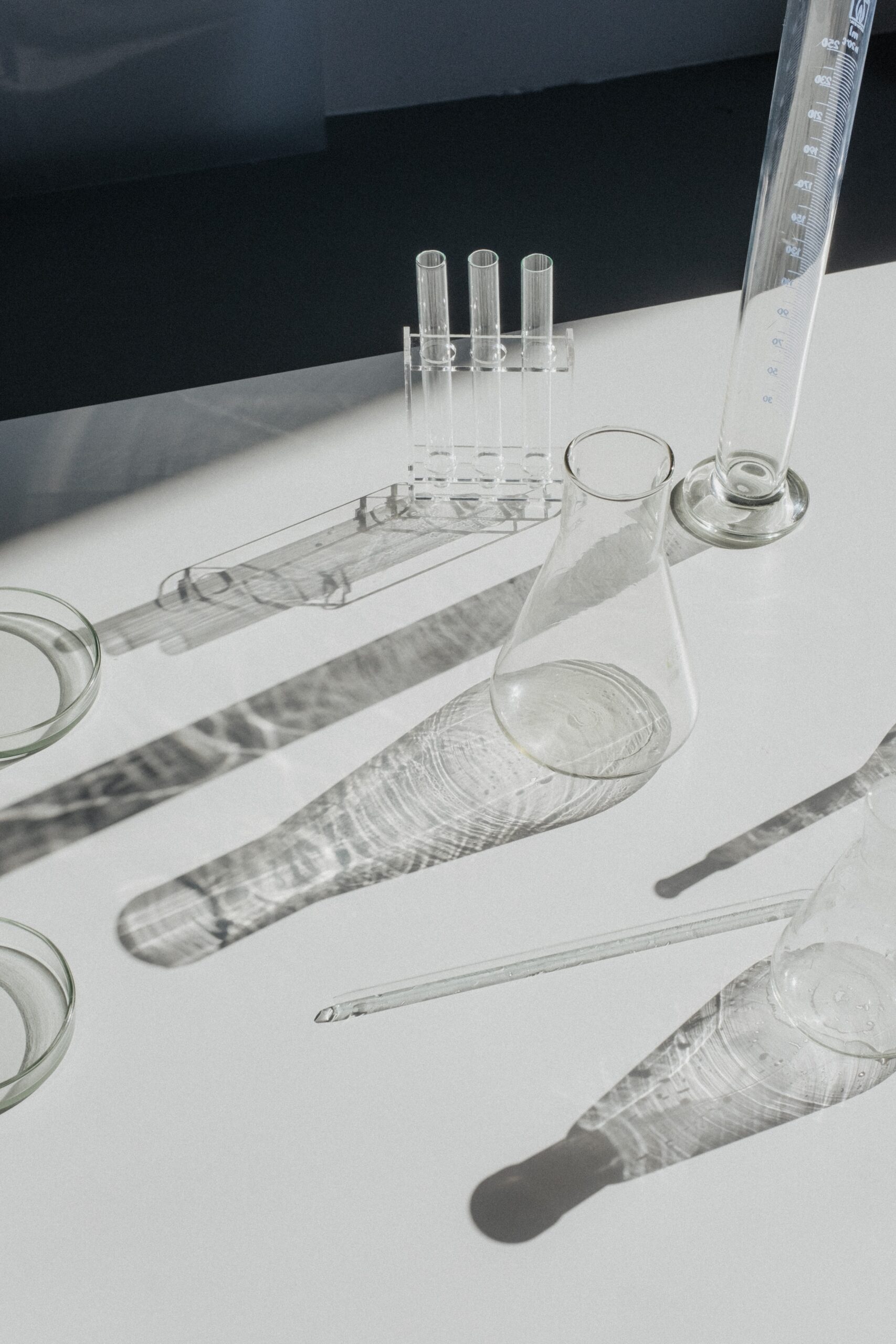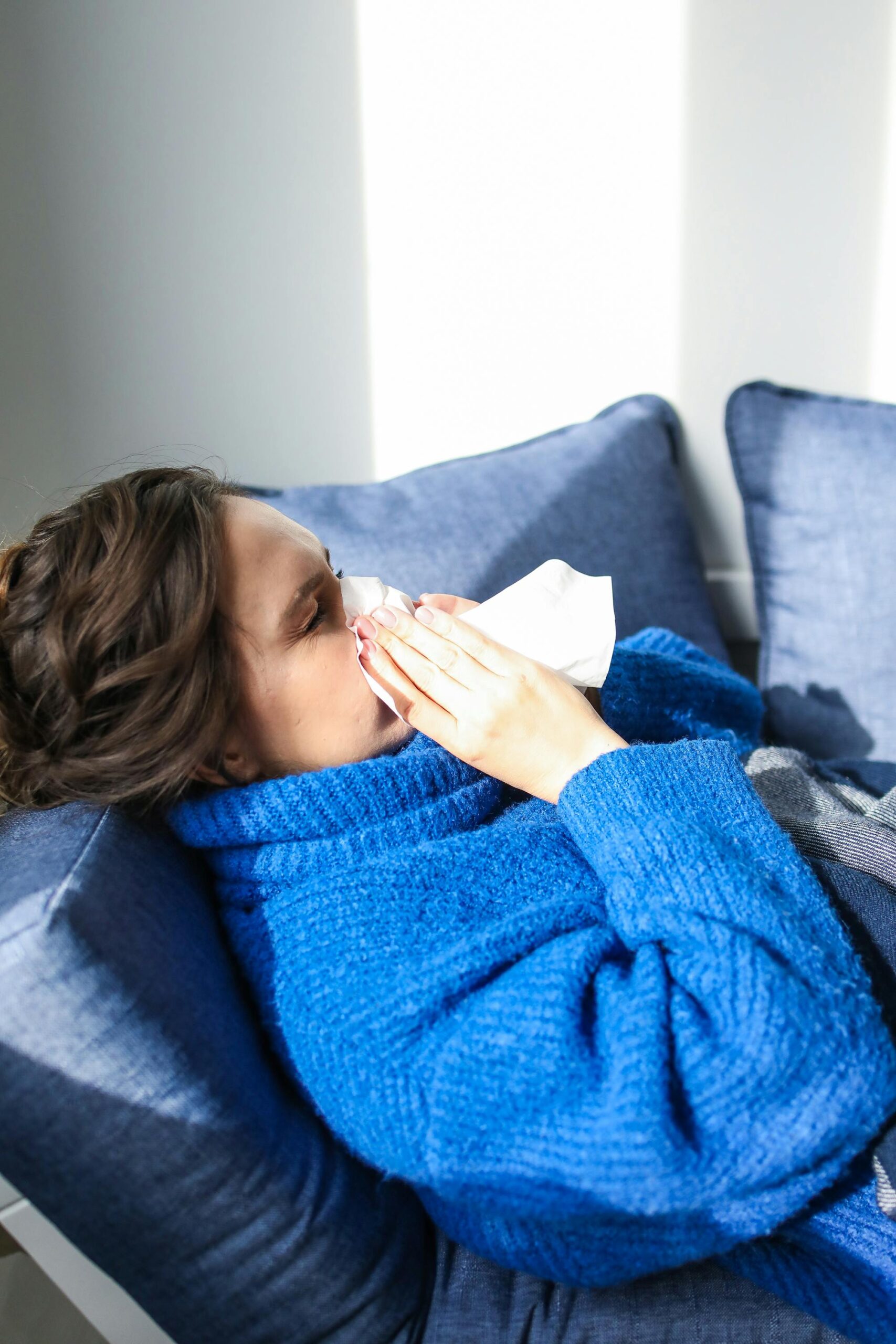In the United States, antibiotic use is widespread. In 2021, healthcare professionals prescribed 211.1 million antibiotics – breaking down to 636 antibiotic prescriptions per 1,000 people. Unfortunately, the CDC estimates that about 30% of the antibiotics prescribed in an outpatient setting are unnecessary, meaning the patient didn’t need antibiotics at all or were prescribed the wrong type or dose of antibiotics.
We know that most people will take antibiotics at some point in their life, sometimes as a medical necessity, sometimes not. While antibiotics can be life saving medications in the right circumstances, they do come with a host of short and long term side effects.
In this article, we’ll discuss the functional medicine approach to healing your gut after antibiotics.
But first, what is the gut microbiome?
The gut microbiome refers to the community of microorganisms, including bacteria, fungi, and viruses, that inhabit the gastrointestinal tract, primarily the large intestine. This intricate ecosystem begins forming even before birth and plays a crucial role in various physiological processes.
The gut microbiome is a dynamic entity that consists of trillions of microorganisms, primarily bacteria. These microorganisms work in concert to contribute to essential functions in your body. Some key roles of the gut microbiome include:
- Digestion: Beneficial bacteria in the gut assist in breaking down complex carbohydrates and fibers that our body cannot digest on its own, aiding in the absorption of nutrients.
- Gut Barrier Function: The microbiome helps maintain the integrity of the intestinal barrier, preventing the entry of harmful substances into the bloodstream.
- Synthesis of Nutrients: Certain bacteria within the microbiome are involved in the production of vitamins, such as B vitamins and vitamin K, which are vital for various physiological processes.
- Neurotransmitter Synthesis: The gut microbiome has an impact on the production of neurotransmitters like serotonin, which play a role in mood regulation and mental well-being.
- Immune System Regulation: The microbiome interacts with the immune system, influencing its development and function. A balanced microbiome helps regulate the immune response and defend against pathogens.
Disruptions, whether from infections, medications like antibiotics, or lifestyle factors can tip the balance in favor of harmful bacteria, leading to a condition known as dysbiosis. Dysbiosis matters because even small changes to the delicate balance in the gut microbiome can contribute to health issues including digestive disorders, immune system dysregulation, and conditions such as inflammatory bowel disease, metabolic disorders, and even mental health disorders.
Restoring equilibrium post-antibiotic use involves creating a friendly environment for the beneficial bacteria to live and thrive – ensuring a return to harmony in your microbiome.
Common Antibiotics and Their Impact On Your Gut
Antibiotics are medications designed to target and eliminate bacterial infections. There are many types of antibiotics and they’re classified according to their antibacterial activity and chemical structure.
The most commonly prescribed antibiotics include:
- Amoxicillin
- Ciprofloxacin
- Metronidazole
- Azithromycin
- Ceftriaxone
- Cephalexin
- Doxycycline
Although antibiotics are necessary in some circumstances, they can have unintended effects on the gut microbiome, the complex community of microorganisms residing in the GI tract. Here’s how antibiotics impact the gut:
Broad-Spectrum Impact
Antibiotics are often broad-spectrum, meaning they can target a wide range of bacteria, including harmful pathogens and beneficial commensal (“good”) bacteria in the gut. This indiscriminate targeting can disrupt the delicate balance of the microbiome and kill off beneficial bacteria.
Altered Microbial Diversity
Antibiotics can lead to a decrease in microbial diversity, as certain bacterial species are more sensitive to the drugs than others. Reduction in diversity can have implications for overall gut health, since a diverse microbiome is associated with many health benefits.
Reduced Short-Chain Fatty Acid Production
Antibiotics can alter the production of short-chain fatty acids (SCFAs), which are byproducts of microbial fermentation in the gut. SCFAs play a crucial role in maintaining gut health, supporting the integrity of the gut lining, and influencing immune function.
Dysbiosis
The collective impact of antibiotic use can lead to a state of dysbiosis, an imbalance in the gut microbiome characterized by a shift away from a healthy microbial composition. Dysbiosis is associated with various digestive issues and has been linked to conditions beyond the gut, including immune system dysregulation and inflammatory responses.
Increased Antibiotic Resistance
Prolonged or frequent antibiotic use can contribute to the development of antibiotic resistance. This occurs when bacteria evolve mechanisms to withstand the effects of antibiotics, potentially leading to challenges in treating bacterial infections in the future.
Potential for Secondary Infections
Antibiotics disrupt the balance of the microbiome and create an environment conducive to the overgrowth of opportunistic pathogens, potentially leading to secondary infections or complications.
It’s important to note that the impact of antibiotics on your gut is influenced by factors such as the type of antibiotic, the duration of treatment, and individual variations in microbiome composition. While antibiotics can be beneficial and sometimes critical for treating certain bacterial infections, the unintended consequences on the gut microbiome underscore the importance of using these medications judiciously and considering strategies to support gut health during and after antibiotic therapy.
Common Side Effects & Symptoms of Antibiotics
As we delve into the aftermath of antibiotic use, it’s crucial to explore the diverse array of symptoms that may emerge, highlighting the potential impacts on your body’s intricate systems.
Some of the most common side effects and symptoms of antibiotics include:
- Changes in bowel movements – constipation, diarrhea, or both
- Mucus in the stool
- Bloating
- Gas
- Belching
- Nausea or vomiting
- Abdominal pain and/or cramping
- Heartburn or reflux
- Multiple food sensitivities
- Yeast infections
- Skin effects – acne, eczema, psoriasis,
- Fatigue
- Brain fog
- Muscle and joint pain
- Mood changes
- Secondary infections – Candida, C. diff, and more.
Now that you know how antibiotics affect your gut microbiome, let’s dive into practical ways you can leverage functional medicine to restore your microbiome after antibiotic use.
Diet Recommendations for Repairing Your Microbiome
Prioritizing your diet for 4-6 weeks after taking antibiotics can feel like a hassle, but it sets you up for long term gut and immune resilience. Think of it as an investment in a healthy future-you. Adopting the following dietary habits help reduce inflammation in the gut and restore microbial balance following antibiotic use.
Limit Inflammatory Foods
Reduce intake of inflammatory foods – refined sugars, alcohol, fried and ultra-processed foods. If there are foods you know you don’t tolerate (gluten, dairy, etc.), it’s a good idea to limit your exposure while you allow your gut to heal.
Include Fermented Foods
Eat fermented foods that are rich in beneficial bacteria to aid in restoring good gut bacteria. Probiotics play a pivotal role in supporting immune function and overall gut health, helping to counteract the potential disruption caused by antibiotics. When buying fermented foods, make sure they contain the live active cultures. Aim to eat at least one of these foods a day:
- Sauerkraut
- Kimchi
- Pickled vegetables
- Miso
- Tempeh
- Natto
- Kefir
- Yogurt
Add Prebiotic Foods
Add prebiotic foods to your diet. Prebiotics are indigestible fibers that nourish the beneficial bacteria in your gut (i.e. prebiotics are what probiotics eat), providing the essential fuel they need to thrive. By including prebiotic-rich foods, you create a friendly environment for the growth of beneficial microbes, contributing to a balanced and resilient gut ecosystem. The following foods are rich sources of prebiotics:
- Garlic
- Onion
- Jerusalem artichokes
- Green bananas
- Chicory
- Raw honey
Make Fiber a Part of Every Meal
Include fiber at every meal to promote healthy bowel movements and support the production of short-chain fatty acids SCFAs. SCFAs are essential for gut health, playing a role in reducing inflammation, nourishing the cells lining the colon, and supporting overall digestive well-being. Regularly include these foods in your diet:
- Fruit – especially berries and kiwi
- Vegetables – broccoli, cauliflower, carrots, leafy greens, radish, celery, etc.
- Beans and lentils
- Nuts – pistachios, almonds, cashews, pecans, walnuts, hazelnuts
- Seeds – chia, flax, pumpkin, sunflower and sesame seeds
- Winter squash
Boost your Protein
Eat high quality proteins with each meal. High-quality proteins like grass-fed and finished beef, pasture raised organic chicken and eggs, wild caught fish, and organic tofu and edamame are crucial for restoring the lining of the gastrointestinal tract. Plus, adding protein to meals helps stabilize blood sugar which is essential for a healthy gut.
Sip Bone Broth
Bone broth is rich in amino acids like proline and glycine that provide the building blocks for repairing and maintaining a healthy gut lining. Including bone broth in your diet post-antibiotics supports the healing process, contributing to the integrity of your gastrointestinal tract.
Hydrate Well
Hydrate with filtered water and herbal teas. Certain herbal teas, like chamomile or ginger have anti-inflammatory and soothing effects on the digestive system, complementing your efforts to restore gut health.
In essence, this strategic approach to post-antibiotic nutrition involves a comprehensive combination of reducing irritants, introducing beneficial microbes, nourishing the gut environment, and providing the essential building blocks for recovery. By following these dietary guidelines, you actively participate in creating an optimal environment for your gut to heal, promoting long-term well-being and resilience.
Supplements for Restoring Your Gut After Antibiotics
Now, let’s explore the supportive role of supplements in the post-antibiotic healing journey, offering targeted assistance in restoring, rebuilding, and repopulating your gut.
Some of our favorite supplements during and after antibiotic use include:
S.Boulardii
Saccharomyces Boulardii (S. Boulardii) is a beneficial yeast often used as a probiotic supplement. It is known for its ability to prevent and alleviate diarrhea caused by antibiotic use. S. Boulardii helps maintain a healthy balance of gut microflora, supporting the restoration of the microbiome after disruption caused by antibiotics. Additionally, it contributes to immune system modulation and helps prevent the overgrowth of harmful bacteria in the intestines. We recommend Thorne’s Sacro-B capsules during antibiotic treatment and the following month. Take 10 billion CFU two times a day, away from the antibiotic and preferably away from food.
Probiotics
Other probiotic strains such as spore-based, bifidobacterium, lactobacillus or others, are the live beneficial bacteria that promote a balanced microbial environment in the digestive tract. Antibiotics deplete both harmful and beneficial bacteria, so supplementing with probiotics helps replenish and restore the diverse community of microbes in the gut. This can aid in digestion, nutrient absorption, and immune system function. We like Ortho Biotic by Ortho Molecular Products because it contains lactobacillus, bifidobacterium, and S. boulardii. If you’re prone to yeast infections, we recommend Fem-Dophilus by Jarrow Farms orally and Yeast-Arrest by Vitanica as suppositories.
Ginger
Ginger possesses anti-inflammatory and antioxidative properties, making it beneficial for gut health. It may help soothe gastrointestinal irritation and reduce inflammation in the digestive tract. Ginger can be particularly useful in calming the digestive system and alleviating nausea, which can be common after antibiotic use. It can be taken in capsule form, tincture, or whole ginger root can be steeped in tea or added to food.
L-glutamine
L-glutamine is an amino acid that plays a vital role in the health of the intestinal lining. It is a key component in the repair and maintenance of the mucosal cells that line the digestive tract. After antibiotic use, which can potentially damage the gut lining, L-Glutamine helps support the healing process and promote the integrity of the gastrointestinal barrier.
Collagen
Collagen is a structural protein that provides strength and elasticity to various tissues, including the gut lining. After antibiotic use, collagen supplementation can support the repair and maintenance of the gut mucosa. This can contribute to a healthy gut lining and aid in overall digestive health. Collagen powder can be added to smoothies, mixed into yogurt or oatmeal, or added to beverages.
GI Revive
Designs for Health GI Revive is a comprehensive supplement formulated with a combination of gut healing nutrients like L-Glutamine, aloe vera, slippery elm, and marshmallow root, among others. These ingredients work synergistically to support gut health by promoting the healing of the gut lining, reducing inflammation, and soothing the digestive tract. GI Revive helps provide comprehensive support for restoring and maintaining optimal gut function, especially after the disruptive effects of antibiotics.
Sunfiber
Tomorrow’s Nutrition Pro Sunfiber is a low FODMAP, soluble fiber supplement that helps restore gut health after antibiotic use. It provides prebiotics to support the microbiome, supports regularity and stool consistency. It’s flavorless and easy to mix into beverages, yogurt, smoothies, and even baked goods.
These specific supplements can support (and expedite) the gut healing process after antibiotic use by replenishing beneficial microbes, promoting the repair of the gut lining, and reducing inflammation. As always, consult with a qualified healthcare professional before adding new supplements to your regimen, especially if you have specific health concerns or conditions.
You can sign up and purchase supplements directly from our online pharmacy called Fullscript, here.
Lifestyle Recommendations Following Antibiotics
Adopting healthy lifestyle practices is always an important step in your health journey, but it becomes even more important when you’re actively healing from illness or antibiotic use.
Consider these lifestyle modifications for optimizing your gut restoration process:
Practice mindful eating.
How you eat is often as important as what you eat. The manner in which you consume food can significantly impact digestion and nutrient absorption. Mindful and relaxed eating promotes optimal digestion, allowing the body to extract essential nutrients effectively. Avoiding rushed or stressful meals supports the digestive process, reducing the likelihood of indigestion and promoting overall gut health. Get in the habit of taking three big belly breaths before meals, sitting down and slowing down, and really chewing your food.
Add gentle movement.
Regular, gentle movement, such as walking or yoga is amazing for digestive health. Physical activity helps stimulate the muscles in the digestive tract, promoting regular bowel movements and preventing issues like constipation. Engaging in low-intensity exercises can also reduce stress which directly supports gut health and digestion.
Get serious about your sleep.
Quality sleep is crucial for the body’s overall recovery and repair processes, including those related to gut health. During sleep, the body undergoes important repair and maintenance activities, and this extends to the gastrointestinal tract. Lack of sufficient and restful sleep can contribute to imbalances in the gut microbiome and compromise immune function, hindering the recovery process after antibiotics.
Play in the dirt.
Spending time in nature exposes you to a diverse array of environmental microorganisms that can improve the diversity of your gut microbiome. Activities like hiking, gardening, or simply being outdoors can increase the variety of beneficial bacteria in your gut. Plus, being in the sunshine supports vitamin D status and
Pet a dog!
Similar to the effects of being outdoors, being around animals helps improve the biodiversity of your gut microbiome. However, don’t let your dog lick your face because the last thing you need is a parasitic infection!
Incorporating these lifestyle practices alongside dietary strategies creates a comprehensive approach to nurturing and maintaining optimal gut health.
How to Tell if Your Gut Microbiome Has Fully Recovered
Determining whether your gut microbiome has fully recovered from antibiotic use involves a multifaceted approach, often incorporating both subjective and objective measures. Here are some indicators and relevant functional medicine tests that can provide insights into the recovery of your gut microbiome:
Symptoms Analysis
First and foremost, we’ll look at your symptoms. A reduction or elimination of gastrointestinal symptoms, such as bloating, gas, irregular bowel movements, and abdominal discomfort, can be indicative of improved gut health. We’ll also consider extra-intestinal symptoms since what happens in the gut doesn’t stay in the gut. For example, we might ask about your skin, yeast infections, energy, mood, and any other signs and symptoms of imbalances that may indicate that your gut needs continued support.
Dietary Tolerance
Dietary tolerance is another great litmus test for evaluating your gut restoration. Improved tolerance to a variety of foods, especially those that may have been triggering prior to recovery, can be a positive sign. If you can reintroduce previously avoided foods without adverse reactions, it may indicate a healthier and more resilient gut.
Functional Testing
If you’re struggling with lingering symptoms or multiple food sensitivities long after your last round of antibiotics, we recommend using functional medicine tests to analyze the underlying issues. We may use a stool analysis like the GI Map to assess beneficial and pathogenic bacteria, yeast, and fungi, markers of inflammation and digestion, helping us understand where to focus our attention. Small Intestinal Bacterial Overgrowth or SIBO is a common occurrence following chronic antibiotic use. A SIBO breath test can provide information on the presence of SIBO if specific symptoms, especially bloating, don’t resolve.
It’s important to note that the assessment of gut health is a nuanced process, and individual responses to recovery may vary. Consulting with a healthcare professional, especially one well-versed in functional medicine, can guide you in selecting the most appropriate tests based on your specific symptoms and health history. Additionally, they can help interpret the results and formulate a personalized plan to support ongoing gut health.
Final Thoughts
Understanding the impact of antibiotics on the gut underscores the need for thoughtful and informed approaches to support recovery. This article offers practical insights into post-antibiotic care through functional medicine, emphasizing dietary choices, supplements, and lifestyle adjustments. By adopting these strategies, you can begin the process of restoring a healthy gut microbiome and promoting long-term resilience and well-being.









